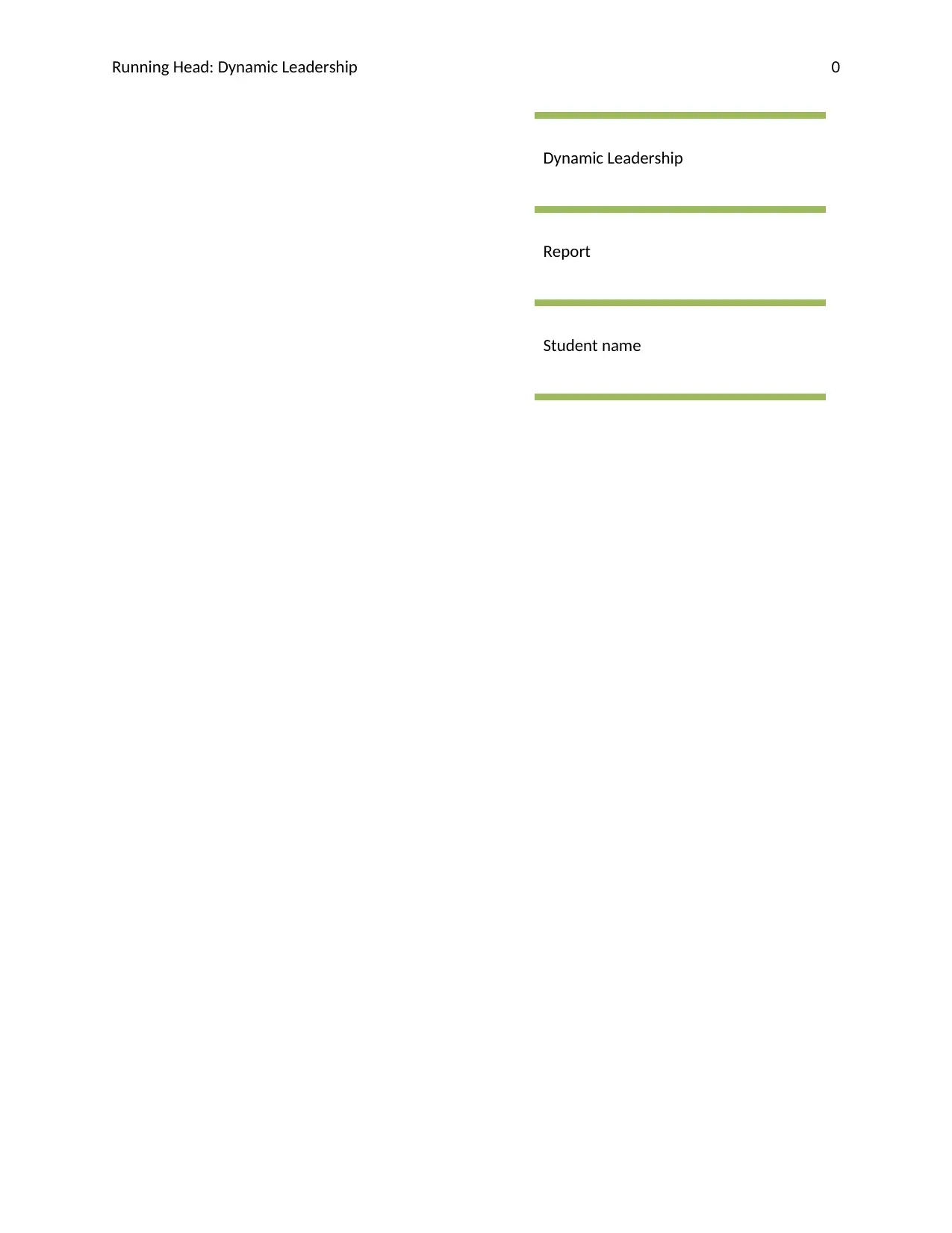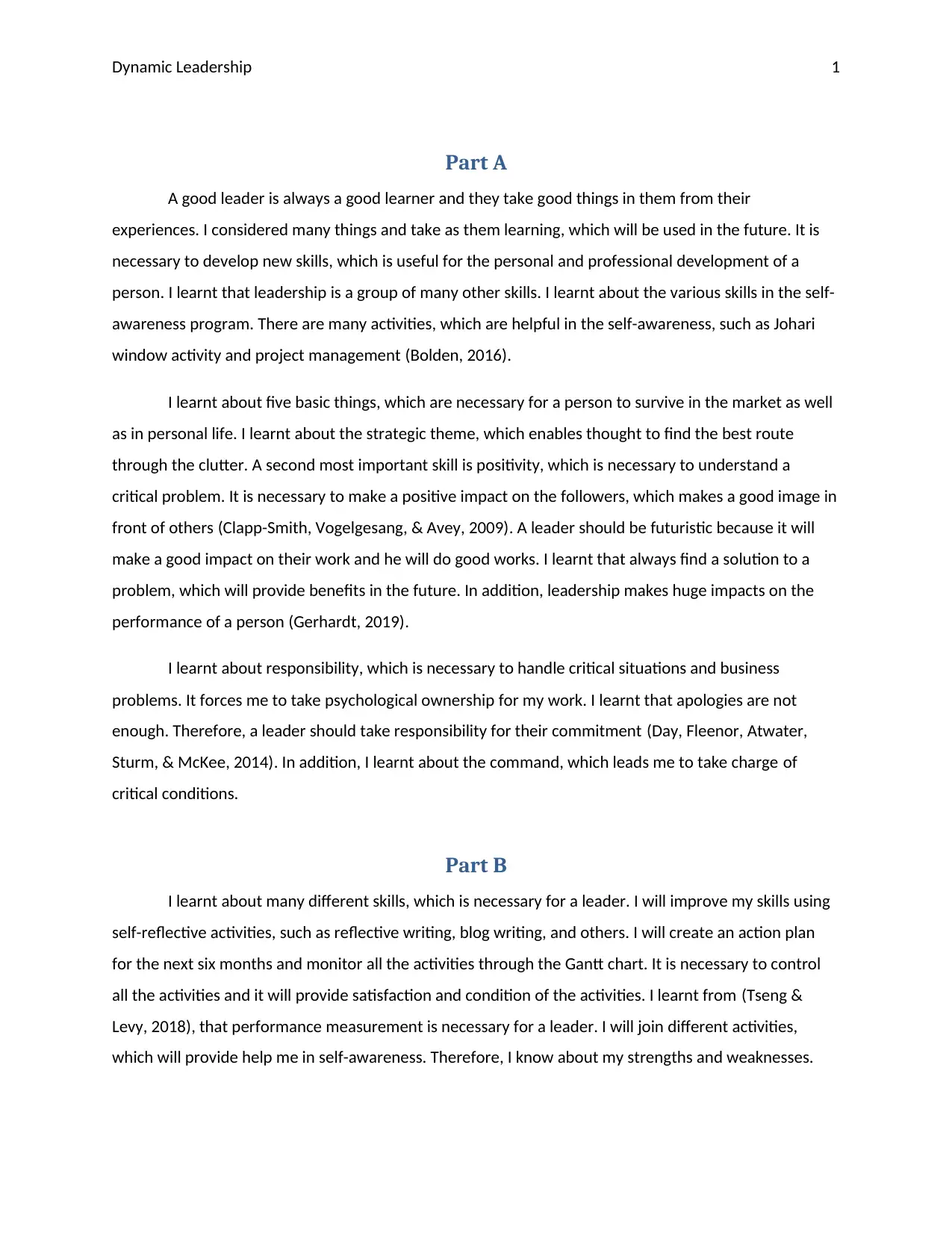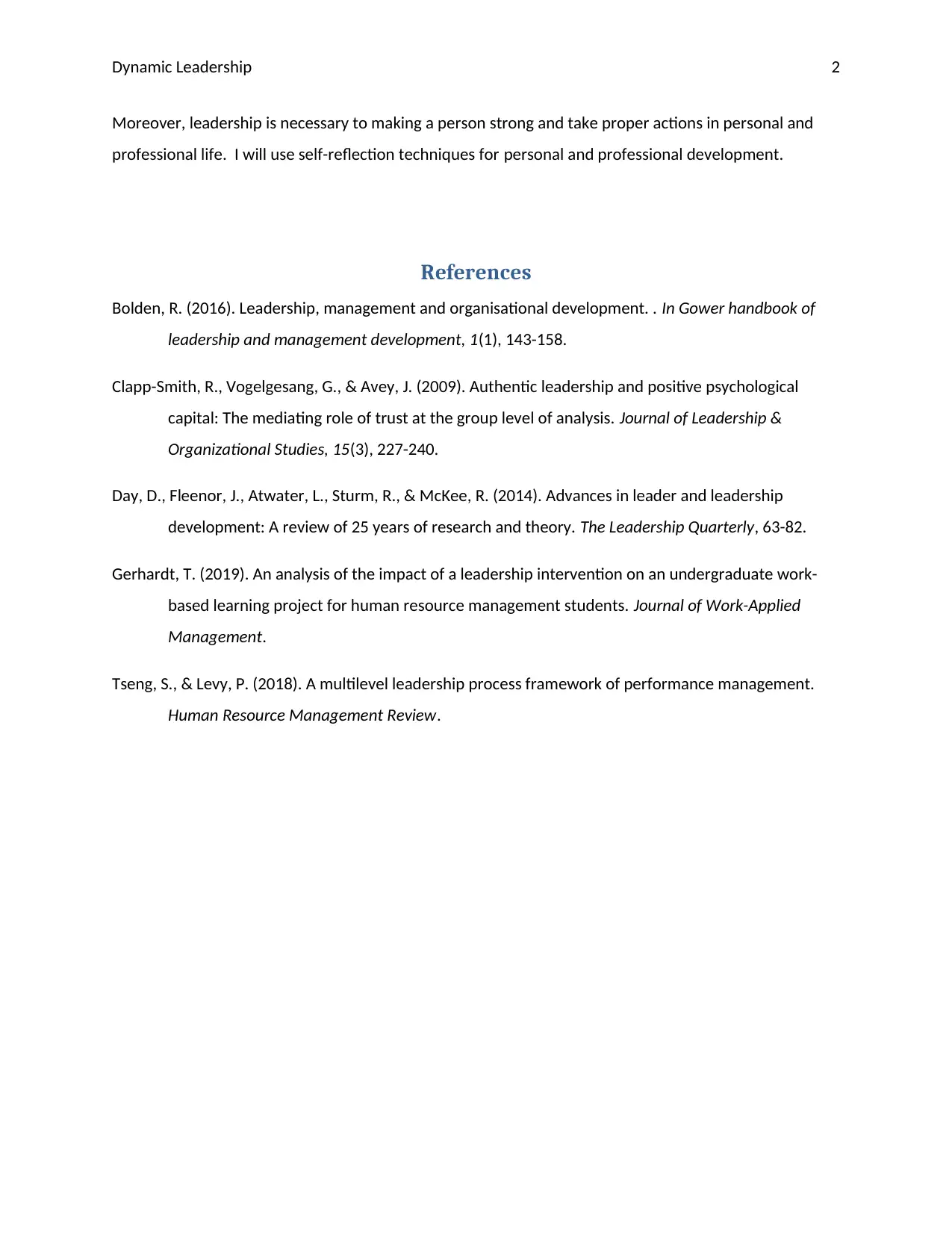Dynamic Leadership MGT601: Self-Reflective Analysis Report - Part A
VerifiedAdded on 2022/11/28
|3
|694
|493
Report
AI Summary
This report is a self-reflective analysis of dynamic leadership, focusing on the student's personal leadership journey. It begins with an exploration of the student's learning experiences, emphasizing the development of skills like strategic thinking, positivity, and responsibility, as revealed through the CliftonStrengths assessment. The report highlights the importance of self-awareness and the application of skills for personal and professional growth. It discusses the student's commitment to self-improvement through reflective activities and action planning, including performance measurement and self-reflection techniques. The analysis references key leadership theories and practices, ultimately presenting the student's plan for continued leadership development. The report incorporates references to relevant literature on leadership and management.
1 out of 3










![[object Object]](/_next/static/media/star-bottom.7253800d.svg)